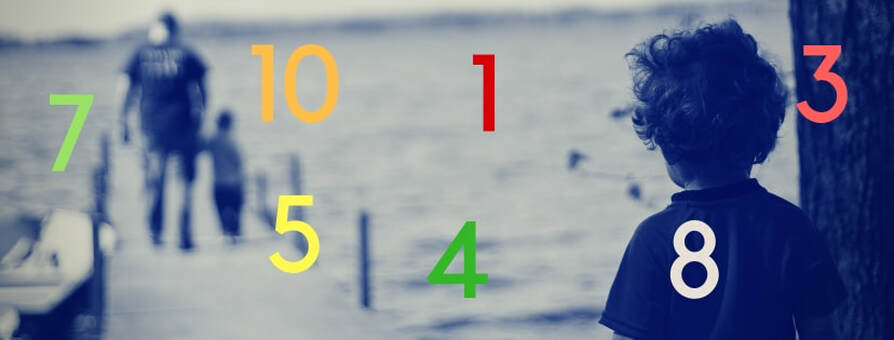|
By Lavern Nissley Most people, myself included until last year, have never heard of ACE. No, it's not the standardized test for applying to colleges; that's ACT. A person's ACE score (Adverse Childhood Experiences) has been correlated with a host of physical and psychological maladies. Continue reading to understand why ACEs are so important and relevant. The CDC’s Adverse Childhood Experiences Study from 1985 shows a stunning link between childhood trauma and the chronic diseases people develop as adults, as well as social and emotional problems. This includes heart disease, lung cancer, diabetes and many autoimmune diseases, as well as depression, violence, being a victim of violence, and suicide. One's answers to 10 questions quickly determines physical and psychological risk factors, explaining the profound influence of how we experienced the first eighteen years of our lives. The ACEs Too High Website explains: "Think of it as a cholesterol score for childhood toxic stress. You get one point for each type of trauma. The higher your ACE score, the higher your risk of health and social problems . . . With an ACE score of 4 or more, things start getting serious. The likelihood of chronic pulmonary lung disease increases 390 percent; hepatitis, 240 percent; depression 460 percent; attempted suicide, 1,220 percent." I encourage you to take your own ACE test at https://acestoohigh.com/got-your-ace-score/, and then look at the interpretations of your score. The data is extensive and very compelling! So why does this matter? Well, since the effect of higher ACEs is so detrimental to adults who experienced trauma in childhood, it makes sense that we should do everything possible to decrease trauma we have control over for the wellbeing of our own kids. We at Encompass can help with that through a variety of programs designed to build couple and family stability/health. So can many other social service agencies, faith organizations and professional counselors.
If you're reading this as an adult and your ACE score is 4 or higher, you have probably already felt the effects of a less than sad childhood. We hope you've sought professional assistance to sort things out. We also hope you will seek whatever resources available to lower the ACE scores of your own children and grandchildren. This reflects the very heart of our vision statement: Family trees forever changed.
1 Comment
3/14/2019 11:33:10 am
Fascinating! Thank you for bringing this to our attention.
Reply
Your comment will be posted after it is approved.
Leave a Reply. |
HostsDr. David Marine and Theresa Mabry are Co-Directors of Encompass since June 1, 2024. TOPICS
All
Archives
July 2024
|
FIND IT QUICKLY |
STAY CONNECTEDOFFICE HOURSMON 9a-2p
TUE 9a-2p WED 9a-2p THU 9a-2p Other hours by appointment VISIT US616 N. Limestone St. | Springfield, OH
|
Funding is provided by Clark County Job and Family Services, Charles L. Shor Foundation, Nehemiah Foundation, Springfield Foundation, Turner Foundation, and private donations and fees.
Program content is the sole responsibility of Encompass Connection Center and does not necessarily represent the views of the funders.
Encompass Connection Center services are provided to all eligible persons on a non-discriminatory basis. Encompass Connection Center complies with all applicable laws and regulations concerning discrimination does not discriminate on the basis of the potential participant's race, gender, gender orientation, age, disability or religion.
Registered 501(c)(3). EIN: 37-1485217
Program content is the sole responsibility of Encompass Connection Center and does not necessarily represent the views of the funders.
Encompass Connection Center services are provided to all eligible persons on a non-discriminatory basis. Encompass Connection Center complies with all applicable laws and regulations concerning discrimination does not discriminate on the basis of the potential participant's race, gender, gender orientation, age, disability or religion.
Registered 501(c)(3). EIN: 37-1485217



